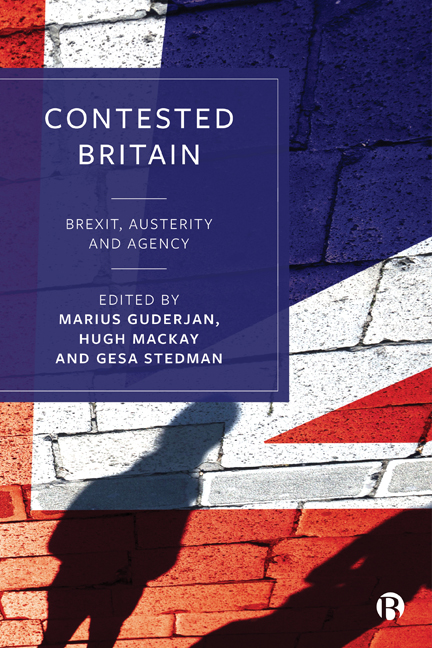15 - More Than the Border? Looking at Brexit through Irish eyes
Published online by Cambridge University Press: 10 March 2021
Summary
Introduction
An exchange between BBC Radio 4 journalist, John Humphrys and Ireland's Europe minister Helen McEntee in early 2019 in which he suggested that ‘… the Republic of Ireland, leave the EU and throw in their lot with this country [Britain]’ seemed to sum up the destructive impact of Brexit on Anglo– Irish relations (O’Carroll, 2019). In the entirely predictable media spat between politicians and media commentators that erupted on both sides of the Irish Sea, it seemed as if long forgotten memories and historical animosities between Dublin and London had been stirred back into life. After decades of close cooperation during the Northern Irish peace process, hopes for a more harmonious relationship between Ireland and Britain were drowned out in yet another war of words over Brexit. The proximate cause of the current breakdown in Anglo– Irish relations relates to a dispute around the future status and nature of the border between the Republic of Ireland (ROI) and the UK.
The border question emerged as the most vexed issue in the Brexit negotiations when Ireland, with support from the other member states of the EU, refused to countenance a hard economic border on the island of Ireland, suggesting that the UK government must bear sole responsibility for designing a border to satisfy the demands of the Brexiteers. Consequently, in order to secure a withdrawal agreement, the UK either had to accept a de facto customs and regulatory border between Northern Ireland and Great Britain or agree to remain inside the single market and the customs union. The ‘backstop solution’ was designed as a compromise between the British government's promise to deliver Brexit and the promise of no ‘hard border’ on the island of Ireland. However, in taking the UK out of the EU while keeping it aligned to the EU's regulatory framework, customs union and the single market, the backstop had become a major, and potentially fatal, obstacle to winning Parliamentary backing for the withdrawal agreement. Thus, an issue which had hardly featured in the 2016 referendum campaign suddenly became the dominating topic in British politics. However, although both Dublin and London spent two years arguing about the border they seemed not to be talking in the same language.
- Type
- Chapter
- Information
- Contested BritainBrexit, Austerity and Agency, pp. 219 - 232Publisher: Bristol University PressPrint publication year: 2020



